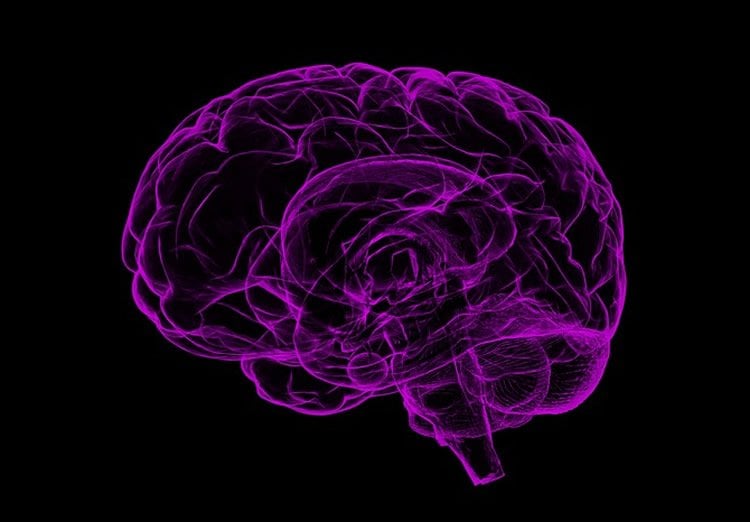Summary: According to researchers, by default, we tend to view immoral acts as if they were simply impossible.
Source: Harvard.
Study suggests the brain views immoral acts as if they are impossible.
Imagine you’re getting hungry at work and you see a candy bar on a co-worker’s desk. Why not just eat it while she’s out of the room?
Some people might not do it because they know it’s wrong. Other people might not do it because it’s risky. But a new study suggests that–for most people–their immediate response might actually be to think that it isn’t even possible.
The study, co-authored by Assistant Professor of Psychology Fiery Cushman and Jonathan Phillips, a post-doctoral fellow working in Cushman’s lab, showed that people, by default, tend to view immoral actions as though they were simply impossible. The study is described in an April 17 paper published in the Proceedings of the National Academy of Sciences.
“When people do something immoral, people tend to say things like, ‘No, that can’t be right,’ or ‘I can’t believe it,'” Phillips said. “There’s a sense that the brain treats these kind of things similarly to how it would react if someone told you it is possible to turn your hat into a candy bar, or something equally impossible.”
There may be good reason for the brain to react that way, Cushman said.
“We think this might actually help people act morally in the real world,” he said. “”Maybe it’s easier to do the right thing if your brain is designed to treat the wrong thing…as if it were impossible. Because if you admitted something was possible, it might start to feel pretty tempting.”
In some sense, he said, it’s as though every person has two voices in their heads that propose possibilities – a more intuitive one that respects the laws of morality, and a more deliberative one that sticks to the laws of physics.
“Part of what we’re learning is why people call things possible or impossible,” Cushman said. “It turns out we don’t do this like a scientist or philosopher, with the goal of being perfectly accurate about the world. Ordinary people want to be practical about the world, and practically speaking, you shouldn’t be doing immoral or irrational things. So a practical approach to decision-making is to simply call all those things impossible, and only focus on the set of things that are worth investing your time in.”
To test how people reacted to both immoral and impossible events, Cushman and Phillips created an experiment using the online labor market Amazon Mechanical Turk.
Participants were presented with scenarios in which a person faced a problem, like getting to the airport after their car breaks down. They saw a series of potential solutions that were either immoral, such as seeing someone being mugged, or physically impossible, like turning your hat into a candy bar, and asked to rate whether each one was a “possible” solution.
The trick, Phillips said, is that half the participants had to respond quickly – in just 1.5 seconds – while the other half were told to wait 1.5 seconds before responding.
The results were dramatic – when participants were given more time for reflection, Phillips said, they called one-quarter of immoral actions impossible. When participants were given less time, however, as many as half were called impossible.
“If people have time to reflect on this, they’re going to use their well-formed, reasoned understanding of which things are possible and impossible,” Phillips said. “But when they have to answer quickly, they don’t have time to do that, so they have to rely on this default idea of which things could even happen in the first place.”
The study raises a host of additional questions – and could open the door to a new understanding of why some people repeatedly commit immoral actions.
“One of the things we are excited about looking into is people with psychopathic tendencies,” Phillips said. “Do they just not care about something like stealing? Or do they care, but the problem is they can’t get it out of their head and eventually they break down. It could be that they wouldn’t show this effect.”
The study also suggests one possible reason why turning to religion is often a successful strategy for those hoping to stop using alcohol or drugs.

“Maybe by making those things immoral, they’re saying we know you want it, but you’re going to treat it as if it’s something you can’t do,” he said.
“But another question we want to follow up on is: Isn’t this a horrible blind spot?” Cushman added. “If you went around assuming that it was impossible for people to do immoral things, wouldn’t you be taken for a sucker immediately?”
The truth, Cushman and Phillips said, may be that people actually switch between two systems of evaluating the world around them – one constrained by morality and another that allows us to contemplate immoral behavior in others.
“The first, you use to govern your own actions and to think about the actions of those close to you,” Phillips said. “But the other system isn’t constructed in that way…because it would be a terrible idea to never consider the possibility that anything bad could happen to you.”
Source: Peter Reuell – Harvard
Image Source: NeuroscienceNews.com image is in the public domain.
Original Research: Full open access research for “Morality constrains the default representation of what is possible” by Jonathan Phillips and Fiery Cushman in PNAS. Published online April 18 2017 doi:10.1073/pnas.1619717114
[cbtabs][cbtab title=”MLA”]Harvard “The Impossibility of Immorality: Brain Views Immoral Acts As If They Are Impossible.” NeuroscienceNews. NeuroscienceNews, 18 April 2017.
<https://neurosciencenews.com/neuroscience-immorality-6432/>.[/cbtab][cbtab title=”APA”]Harvard (2017, April 18). The Impossibility of Immorality: Brain Views Immoral Acts As If They Are Impossible. NeuroscienceNew. Retrieved April 18, 2017 from https://neurosciencenews.com/neuroscience-immorality-6432/[/cbtab][cbtab title=”Chicago”]Harvard “The Impossibility of Immorality: Brain Views Immoral Acts As If They Are Impossible.” https://neurosciencenews.com/neuroscience-immorality-6432/ (accessed April 18, 2017).[/cbtab][/cbtabs]
Abstract
Morality constrains the default representation of what is possible
The capacity for representing and reasoning over sets of possibilities, or modal cognition, supports diverse kinds of high-level judgments: causal reasoning, moral judgment, language comprehension, and more. Prior research on modal cognition asks how humans explicitly and deliberatively reason about what is possible but has not investigated whether or how people have a default, implicit representation of which events are possible. We present three studies that characterize the role of implicit representations of possibility in cognition. Collectively, these studies differentiate explicit reasoning about possibilities from default implicit representations, demonstrate that human adults often default to treating immoral and irrational events as impossible, and provide a case study of high-level cognitive judgments relying on default implicit representations of possibility rather than explicit deliberation.
“Morality constrains the default representation of what is possible” by Jonathan Phillips and Fiery Cushman in PNAS. Published online April 18 2017 doi:10.1073/pnas.1619717114






